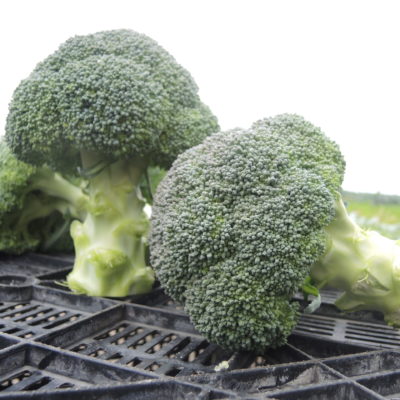Babilon F1 (CLX 3572)



Opgelet: Deze informatie en enige aanvullende/overige verbale of schriftelijke informatie die gegeven kan worden namens Hazera, geeft gemiddelde resultaten weer van specifieke proeven; deze zijn niet uitputtend en ook niet noodzakelijkerwijs nauwkeurig en mogen niet worden opgevat als een advies, richtsnoer, aanbeveling, verklaring of garantie. Zaaitijden en groeigebieden zijn enkel indicatief. Afbeeldingen zijn enkel illustratief. De verkoop & het gebruik van zaden is onderhevig aan de voorwaarden en condities die gezamenlijk worden weergegeven op zaadverpakkingen en in catalogi en/of op: http://www.hazera.com/terms-and-conditions. E&OE. © 2026 Hazera. Alle rechten voorbehouden.
For tomatoes:
* Resistente rassen kunnen enige ziektesymptomen of schade laten zien bij hoge plaagdruk en/of bij negatieve omgevingsomstandigheden en/of ten aanzien van nieuwe biotypes, pathotypes, rassen of stammen van de plaag die de kop op kunnen steken. Een bodemtemperatuur van hoger dan 27°C en andere belastingen kunnen ertoe leiden dat de afweer van nematoden wordt gebroken.
** Raadpleeg de ISF-definities op https://worldseed.org/wp-content/uploads/2022/11/Definition_on_reaction_plants_to_pests_2022_final_clean2.pdf Een kopie van de definities voor termen die reacties van planten op plagen omschrijven voor de groentezaadsector, kan op verzoek worden verkregen op ons kantoor.
For all other crops:
* Resistente rassen kunnen enige ziektesymptomen of schade laten zien bij hoge plaagdruk en/of bij negatieve omgevingsomstandigheden en/of ten aanzien van nieuwe biotypes, pathotypes, rassen of stammen van de plaag die de kop op kunnen steken.
**Raadpleeg de ISF-definities op https://worldseed.org/wp-content/uploads/2022/11/Definition_on_reaction_plants_to_pests_2022_final_clean2.pdf Een kopie van de definities voor termen die reacties van planten op plagen omschrijven voor de groentezaadsector, kan op verzoek worden verkregen op ons kantoor.



Opgelet: Deze informatie en enige aanvullende/overige verbale of schriftelijke informatie die gegeven kan worden namens Hazera, geeft gemiddelde resultaten weer van specifieke proeven; deze zijn niet uitputtend en ook niet noodzakelijkerwijs nauwkeurig en mogen niet worden opgevat als een advies, richtsnoer, aanbeveling, verklaring of garantie. Zaaitijden en groeigebieden zijn enkel indicatief. Afbeeldingen zijn enkel illustratief. De verkoop & het gebruik van zaden is onderhevig aan de voorwaarden en condities die gezamenlijk worden weergegeven op zaadverpakkingen en in catalogi en/of op: http://www.hazera.com/terms-and-conditions. E&OE. © 2026 Hazera. Alle rechten voorbehouden.
For tomatoes:
* Resistente rassen kunnen enige ziektesymptomen of schade laten zien bij hoge plaagdruk en/of bij negatieve omgevingsomstandigheden en/of ten aanzien van nieuwe biotypes, pathotypes, rassen of stammen van de plaag die de kop op kunnen steken. Een bodemtemperatuur van hoger dan 27°C en andere belastingen kunnen ertoe leiden dat de afweer van nematoden wordt gebroken.
** Raadpleeg de ISF-definities op https://worldseed.org/wp-content/uploads/2022/11/Definition_on_reaction_plants_to_pests_2022_final_clean2.pdf Een kopie van de definities voor termen die reacties van planten op plagen omschrijven voor de groentezaadsector, kan op verzoek worden verkregen op ons kantoor.
For all other crops:
* Resistente rassen kunnen enige ziektesymptomen of schade laten zien bij hoge plaagdruk en/of bij negatieve omgevingsomstandigheden en/of ten aanzien van nieuwe biotypes, pathotypes, rassen of stammen van de plaag die de kop op kunnen steken.
**Raadpleeg de ISF-definities op https://worldseed.org/wp-content/uploads/2022/11/Definition_on_reaction_plants_to_pests_2022_final_clean2.pdf Een kopie van de definities voor termen die reacties van planten op plagen omschrijven voor de groentezaadsector, kan op verzoek worden verkregen op ons kantoor.